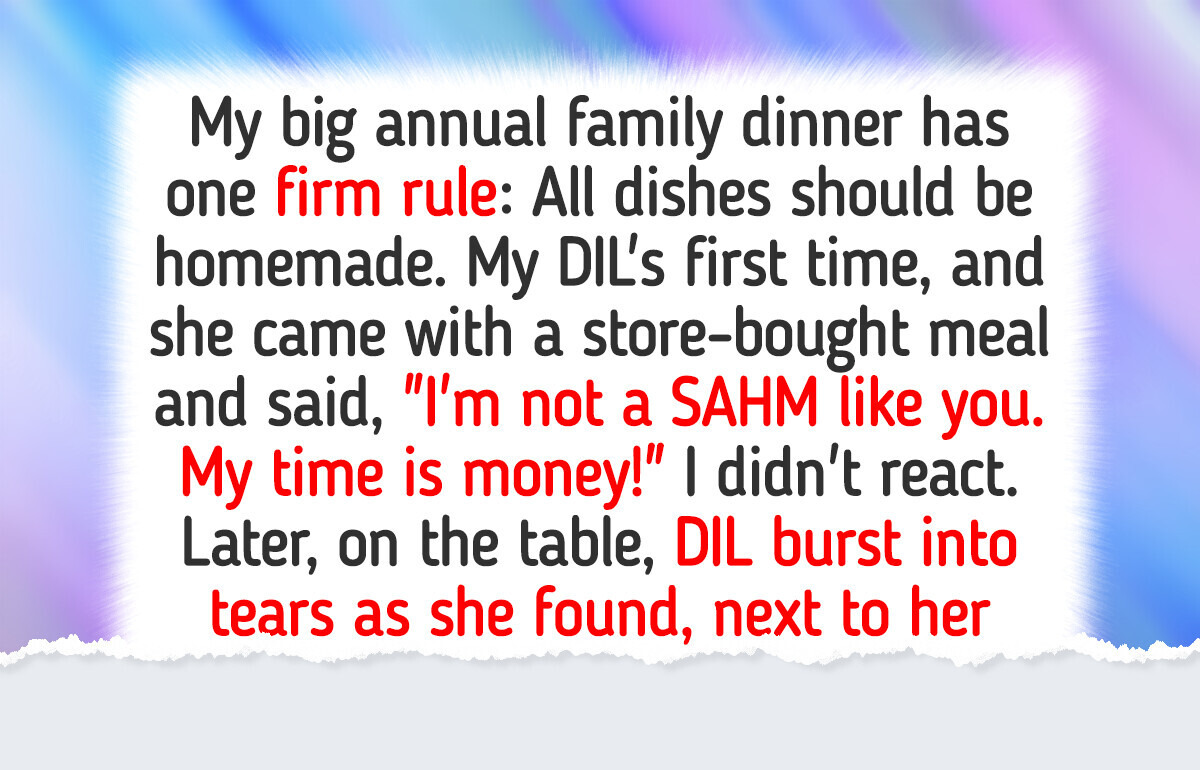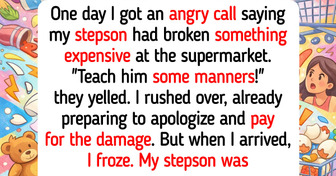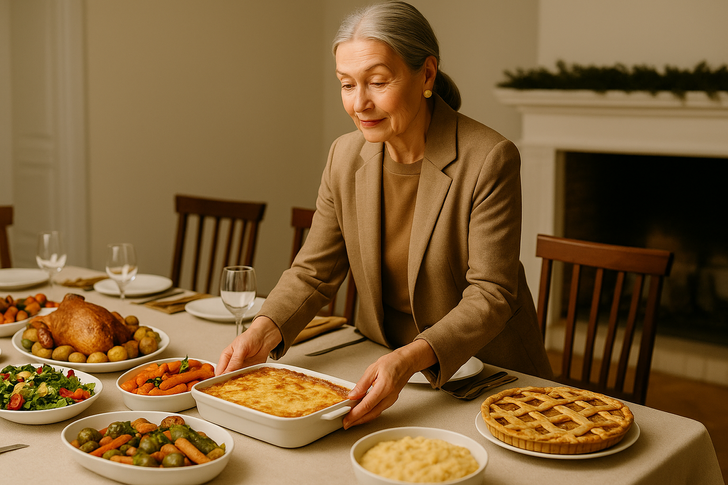I may have taken a different tact, but you weren't out of bounds. If she truly wasn't willing to make something simple but homemade, she should have declined your invitation and stayed at home. Everyone can make something. To bring store bought food, complain that SAHMs are the only people who can make homemade food was very rude of her. Working people often cook three meals a day. Our time is money as well. Your rule showed the attention to details and love you wanted to continue. It didn't have to be fancy, but she didn't even think about it or try... she lost all respect for your process.
My DIL Broke My House Rules—I Thought Her a Lesson She Won’t Forget

Family get-togethers are special moments to honor traditions, enjoy food, and strengthen bonds with those closest to us. However, these occasions can sometimes stir up conflict, especially when individual viewpoints or assumptions clash. Finding harmony between one’s own principles and the broader family atmosphere can be challenging, and good intentions don’t always guarantee smooth outcomes. Not long ago, a reader reached out to Bright Side with a heartfelt account of a family dinner that went awry, hoping for insight on how to cope with the emotional ripple effects.
Here’s her letter:

Hi Bright Side,
Every year, I host a big family dinner that’s rooted in tradition. One of my few, firm rules is that everyone must bring a homemade dish—whatever they like, as long as it’s made with their own hands. It’s something that means a lot to me, not just because of the food, but because of the love and time people put into it.
This year, it was my daughter-in-law’s first time attending. She showed up with a store-bought dish and, rather bluntly, said, “I’m not a stay-at-home mom like you. My time is money!” I said nothing at the time, but the comment stuck with me.
When it came time to eat, everyone gathered at the table. That’s when my DIL noticed something different. Next to her dish, I had placed a stack of disposable plates. I simply said, “Here’s something to help speed things up. After all, you don’t have time for all this effort, do you? And since this isn’t homemade, I figured you wouldn’t mind eating off paper plates while we enjoy the tradition at the table.”
She burst into tears.
I know my reaction was sharp, but so was her dismissal of something that matters deeply to me. Now I wonder—was I too harsh, or simply setting a boundary in my own home?
Sincerely,
A Tradition-Loving Host

Thank you for trusting us with your story. We’ve put together 4 thoughtful and personalized pieces of advice to help you navigate this situation with your DIL. Each one is designed to support you in expressing your values clearly, addressing the tension constructively, and fostering more respectful, harmonious interactions moving forward.
Reframe the Tradition with Flexibility
Take a moment to reflect on whether the tradition of bringing a homemade dish is truly essential, or if it might be adapted to better fit everyone’s circumstances. While family traditions carry emotional weight, they often benefit from a touch of flexibility to stay inclusive. Consider explaining the heart behind the rule to your daughter-in-law—emphasizing connection and effort, not perfection. You might propose that she brings a store-bought dish with a personal twist, like a meaningful garnish or presentation style. This small gesture of compromise can honor your values while making her feel seen and respected.
Choose Conversation Over Conflict
Instead of letting resentment simmer or standing your ground in silence, consider initiating a calm, one-on-one conversation with your daughter-in-law. Start by acknowledging how the situation may have hurt her feelings, while gently expressing why the homemade dish tradition holds meaning for you. Focus on mutual understanding rather than blame, and invite her to share her own perspective openly. Listening without defensiveness can go a long way in repairing trust and showing respect. This honest dialogue can defuse lingering tension and lay the groundwork for stronger communication in the future.
Lead with Empathy, Not Assumptions
Take a step back and try to view the situation through your daughter-in-law’s eyes—balancing work, family, and the pressure of fitting into new traditions can be overwhelming. Her comment may have come off as dismissive, but it might stem from feeling inadequate or unsure of how to measure up. Instead of reacting defensively, offering empathy can be a powerful way to soften tensions and show goodwill. Let her know that her contributions—homemade or not—are appreciated, and gently emphasize the spirit behind the tradition rather than the letter of the rule. This compassionate approach can nurture understanding and create a more supportive family dynamic.

Acknowledge the Impact, Even If the Intent Was Right
Take a moment to reflect on how the situation unfolded in front of others, and consider offering an apology—not for your values, but for how the message was delivered. While your emphasis on tradition is understandable, addressing the issue publicly may have embarrassed your daughter-in-law and intensified the conflict. A private conversation would have allowed space for explanation without the pressure of an audience. Going forward, setting a family norm of handling sensitive matters in private can help maintain respect and trust. A thoughtful apology for the setting—not the sentiment—can go a long way in healing hurt feelings and restoring harmony.
Family dynamics often walk a fine line between warmth and complexity—particularly when it comes to meeting a significant other’s relatives. One reader opened up about an experience where her future mother-in-law embarrassed her in front of others... but she found a way to turn the tables. Read her story here.
Comments
Related Reads
I Refused a Job Promotion, Now HR Stepped In

My MIL Publicly Mocks My Food, So I Served Her a Medium Rare Payback

15 Stepchildren Who Finally Saw Their Stepparents as Real Family

13 Stories of Quiet Kindness That Show Superhuman Strength in Ordinary People

15 Moments That Prove Quiet Kindness Is What Keeps the World Together

I Refused to Let My Boss Track My Every Move—I Don’t Need an “Ankle Monitor”

13 Life Moments That Prove Kindness Costs Little but Goes Far

I Quit After My Boss Denied Me My Lunch Break

15 Moments That Prove Kindness and Compassion Are the Only Currencies That Never Lose Their Value

15 Moments That Teach Us to Stay Kind, Even When the World Gets Tough

10+ Stories That Remind Us Why Small Acts of Kindness Echo Forever

I Refuse to Give Up the Passenger Seat for My MIL—She Should Learn Her Place

